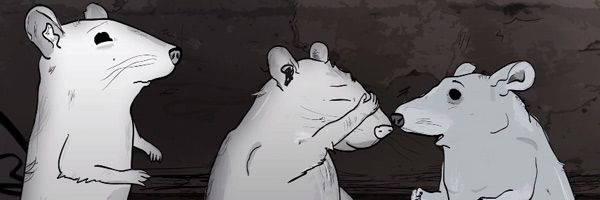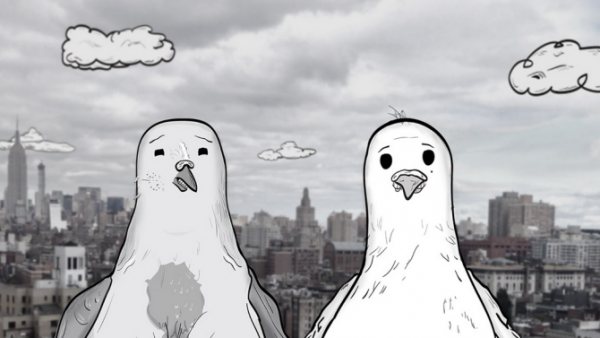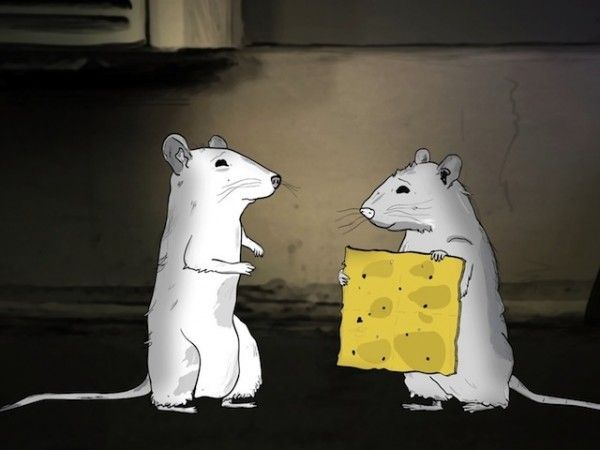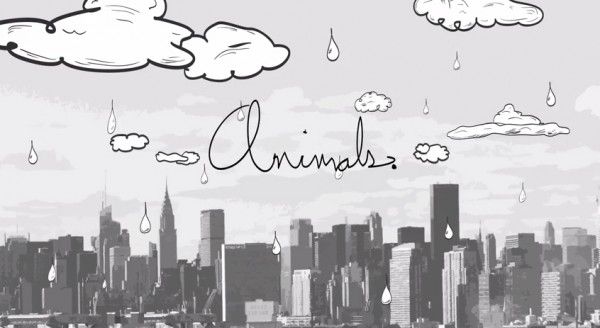In the first episode of HBO's Animals, there's quite a lot of talking, but it's the moment with the least amount of talking that tips the series' proverbial hat. While a few stoned moths discuss the mysteries of the universe, a couple of sleazy strip-club hustlers get rid of the body of a friend who overdosed on a bad line of cocaine. The scene is done all in grunts, gasps, and sighs, and reveals a cynical view of humanity, of people being far more bestial and brutal than the little creatures that scurry, fly, and swim around us.
In contrast, the majority of the series shows pigeons, rats, fish, insects, and various so-called pests or pets gabbing along about distinctly human endeavors, including drug use, fame, fashion, and the minutia of dating and relationships. The intimation seems to be that these human activities and generally self-interested behavior are tremendously silly, if not entirely useless, from the view of an outsider. And if nothing else, creators Mike Luciano and Phil Matarese have succeeded in evincing that crucial perspective, giving these human ways of being an unmistakable tinge of otherness.
Beyond the cleverness of the premise and this perspective, however, Animals doesn't seem to have much insight to relay, nor much in the way of guffaws. In one of the show's more memorable bits, two married fish-couples have dinner together, and after one of the couples has a screaming match about their increasing indifference towards one another, the other couple reveals that they recently went through another in a long line of miscarriages. The emotional pit of the scene is that everyone has problems, and that some simply cannot help but air them out in public, no matter how crass and irritating they come off as. There's a certain kind of human truth to the sequence, but it's also intensely familiar, offering no sense of personal experience or philosophy to give the discussion a distinct style. In attempting to portray real human conversations and actions with objective accuracy, Luciano and Matarese give nothing of themselves and, what's worse, render these inventively animated sequences amiable rather than funny or curious.
The series swims (pun intended) around major cultural discussions and yet offers nothing in terms of detail. When a pair of rats discuss and begin working in fashion, there seems to be no knowledge of the industry shown outside of terminology, and when the stoned moths talk about getting high, there's no sense that they have ever really had any intimate experiences with recreational drugs or have any interest in doing so. The result is that these conversations skimp on nuance and tread over more broad, parable-like material, such as a shallow, opportunistic friend getting a karmic kick in the ass for outsized hubris.
In the moth scene, the ultimate goal is seemingly nothing more than suggesting that pretending to be experienced keeps you at a distance from real, thrilling experiments in living, a lesson embodied in a moth who pretends to be tripping. Not for nothing does Animals similarly feel like a series of vague, mildly surreal takes on life events and actions, all of which are alternatively carelessly sarcastic in tone or lacking in the wild pulse of life that denotes the existence of animals big and small, rather than a studied approximation of just such things.
★★ Fair - Not so bad, not so good




